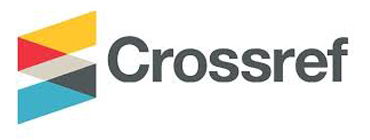IMPROVING LOYALTY OF SCHOOL MANAGEMENT PERSONNEL THROUGH ORGANIZATIONAL COMMUNICATIONS APPROACH
Abstract
Teachers and employees are the driving force in the management of school institutions. Successfully managing a school depends on the flow of information from each level. Communication as a human need plays a crucial role in increasing the loyalty of school residents. Leadership communication to subordinates and vice versa and communication between members is also expected to create a harmonious working atmosphere. This study aims to determine the efforts to increase the loyalty of school personnel through an organizational communication approach by school principals by applying qualitative research methods that describe in-depth what was obtained from the informant. The study results indicate that the form of organizational communication in increasing the loyalty of school residents takes place vertically and horizontally. The principal communicates openly or directly at ceremonies and meetings and personally to teachers and employees in instructing all kinds of policies and providing encouragement to improve the performance of teachers and employees. Likewise, between teachers and employees, there is horizontal communication that creates a harmonious and pleasant work environment to increase employee loyalty and motivation.
Full Text:
PDFReferences
Cangara, Hafied, 2014. Perencanaan dan Strategi Komunikasi, Jakarta: PT Raja Grafindo Persada.
Suwardi, Masni, Fitrin, Pengaruh Loyalitas Terhadap Kinerja Guru SD Awal, Jurnal AL-AZHAR INDONESIA SERI HUMANIORA, Vol .3, No. 1, Maret 2015
Frestiawan Noringgar Jaya, Pengaruh Keadilan Prosedural, Gaya Kepemimpinan Transformasional Dan Motivasi Kerja Terhadap Loyalitas Karyawan, Jurnal Ekobis Dewantara Vol. 1 No. 11 November 2018
Rahman, Gazali, 2000. Teori Organisasi dan Komunikasi, Makassar: Universitas Hasanuddin.
Putra, Heri Rahmatsyah. Bentuk Komunikasi Organisasi Di Jurusan Komunikasi Dan Penyiaran Islam UIN Ar-Raniry Banda Aceh, Jurnal Ilmu Komunikasi Volume 5 Nomor 2 Oktober 2019
Wahjosumijo, 1999. Kepemimpinan Kepala Sekolah Tinjaun Teoritik dan Permasalahannya, Jakarta : PT Raja Grafindo Persada.
Handoko, T. Hani, 1998. Manajemen, edisi ke-2, Yoyakarta: BPFE-Yogyakarta.
Purwanto, Djoko, 2006. Komunikasi Bisnis, Edisi ketiga, Jakarta: Erlangga.
Hamdi Asep Saepul, Baharuddin E, 2014. Metode Penelitian Kuantitatif Aplikasi Dalam Pendidikan, Yogyakarta: Budi Utama.
Effendy, Onong Uchjana, 2004. Ilmu Komunikasi; Teori dan Praktek, Bandung: PT. Remaja Rosdakarya.
Handoko, T. Hani, 1998. Manajemen, edisi ke-2, Yoyakarta: BPFE-Yogyakarta.
Kholil, Syukur, 2007. Komunikasi Islam, Bandung: Cipta Pustaka Media.
Muhammad, Arni, 2015. Komunikasi Organisasi, Jakarta: Bumi Aksara.
Muhammad, Arni, 2011. Dasar-dasar Organisasi. Jogjakarta: UUI Press Jogjakarta.
Mulyana, Deddy, 2007. Ilmu Komunikasi Suatu Pengantar, Bandung: Remaja Rosdakarya.
Susanto, Sosiologi Komunikasi, cetakan ke-3, Jakarta: Kencana Prenada Media Group, 2008.
Wahjosumijo, 1999. Kepemimpinan Kepala Sekolah Tinjaun Teoritik dan Permasalahannya. Jakarta : PT Raja Grafindo Persada.
DOI: http://dx.doi.org/10.30829/tar.v28i2.1108
Refbacks
- There are currently no refbacks.

Jurnal Tarbiyah by UIN Sumatera Utara Medan is licensed under a Creative Commons Attribution-NonCommercial-ShareAlike 4.0 International License.
Based on a work at http://jurnaltarbiyah.uinsu.ac.id/index.php/tarbiyah.
Permissions beyond the scope of this license may be available at http://jurnaltarbiyah.uinsu.ac.id/index.php/tarbiyah/about/submissions#copyrightNotice.
















